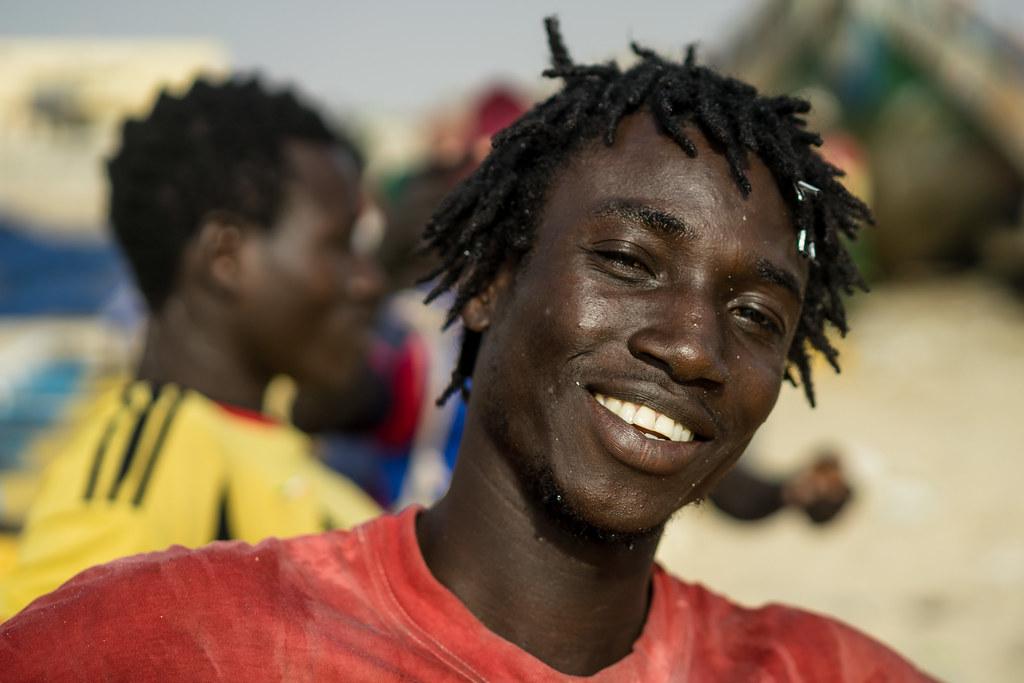
On January 15, 2020, Mauritania’s Ministry of Secondary Education issued a circular authorizing three districts to provide free reproductive health information and services, including family planning, for in-school adolescents. Located in Nouakchott, the country’s capital, these three districts contain nearly one-third of Mauritania’s population.[1] This achievement, led by Opportunity Fund grantee STOP SIDA in collaboration with community members and young people, is the first step in a broader effort to obtain ministerial support for the provision of free reproductive health information and services to students in all secondary schools nationwide.
In Mauritania, the modern contraceptive prevalence rate for all women is persistently low at 9.6% and one in five women aged 20 to 24 years old gave birth before the age of 18.[2] Mauritanian adolescents’ lack of sexual health knowledge, economic dependence, and fear of being stigmatized within an already conservative socio-cultural environment limits their access to and availability of reproductive health services.
Despite this challenging environment, Mauritania has made significant progress on family planning and reproductive health issues over the last decade including making a Family Planning 2020 commitment and approving its first reproductive health law in 2017. The new law makes reproductive health a universal right guaranteed to all throughout the course of their lives and provides the legal framework for young people to access reproductive health information and services.[3]
Building on this progress, in July 2019, STOP SIDA participated in an Advance Family Planning (AFP) SMART workshop to develop a comprehensive advocacy strategy to expand youth access to services. STOP SIDA enlisted the support of key political actors including the Nouakchott mayor and the Regional Director of Sanitary and Social Action, as well as religious leaders, to establish a multisectoral technical committee to take the strategy forward. An active youth subcommittee was also created to engage young people at every step of the strategy development and implementation.
The technical committee and the youth subcommittee first determined that they needed to demonstrate the demand for reproductive health information and services in schools to obtain support from the Ministry of Secondary Education. With the support of two parents’ associations, STOP SIDA signed a partnership agreement with the directors of one private and one public secondary school to field test the provision of these services.
Beginning in November, STOP-SIDA provided free reproductive health information, counseling, and services to adolescent students through mobile clinics and referrals to a health center within walking distance of the schools. All forms of contraception were offered in addition to sexually transmitted infections diagnosis and treatment and HIV testing. STOP SIDA also organized reproductive health information and awareness raising sessions at both the schools and the health center. They supported the field test with their own funds and Jhpiego provided contraceptive supplies for the mobile clinics.
Between November 15, 2019, and February 15, 2020, more than 4,400 adolescents received information and/or services through the program.
The success of the school partnership as well as the broad community, religious, and political support demonstrated the demand for this type of intervention in schools. The multisectoral technical committee used this evidence to advocate with the Secretary General of the Ministry of Secondary Education to issue the circular.
STOP SIDA plans to support the Ministry of Secondary Education to implement the circular in the three districts to pave the way to scale up the approach nationwide and advocate for additional financial support to ensure these services can continue.
Plans to implement the circular were put on hold in March 2020 due to the COVID-19 pandemic. However, STOP SIDA continues to document the results of the pilot to generate evidence for future advocacy. The team is also establishing new partnerships with Jhpiego and the United Nations Population Fund to expand access to family planning commodities and awareness raising activities with youth across Mauritania.
The Opportunity Fund, administered by PAI with the support of AFP, is a funding mechanism supporting advocates to seize opportunities to strengthen Family Planning 2020 commitments at the local, national and regional level.
References
1. Office National de la Statistique (ONS). Recensement Général de la Population et de l’Habitat (RGPH), 2013. « Projections démographiques ». Mai 2016.
2. « Mauritania » Track2020, May 1, 2020. http://track20.org/Mauritania.
3. République Islamique de Mauritanie. “Projet de Loi No Relative a la Sante de la Reproduction” PRB.org. https://www.prb.org/wp-content/uploads/2018/05/Projet-de-Loi-Relative-a%CC%80-la-Sante%CC%81-de-la-Reproduction-2017.-Mauritanie.pdf.

